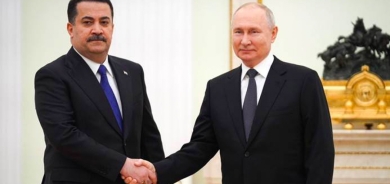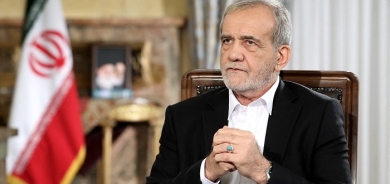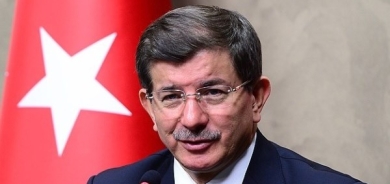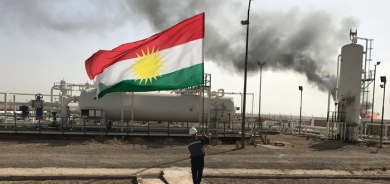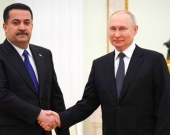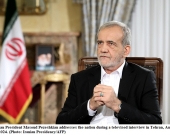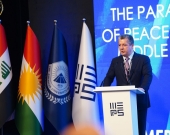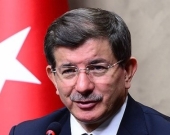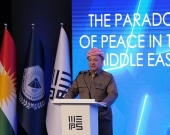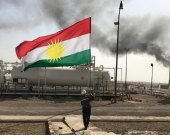Today Marks 42nd Anniversary of Kurdish Leader Mustafa Barzani’s Passing

Childhood
Mustafa Sheikh Mohammed Barzani was born on 14th of March 1903 in Barzan village of Kurdistan. The Ottoman Empire arrested his older brother Sheikh Abdulsalam when he was three years old and Barzani with his mother were jailed for nine months.
Leading Revolutions
Barzani joined the revolution led by Sheikh Mahmoud Hafid in 1919, Leading a group of 300 fighters. A year later, Sheikh Ahmed Barzani tasks him to visit the Kurds in Turkey and establish coordination with the revolution led by Sheikh Said Piran.
During the revolution between 1931 and 1932, Barzani fought against the British Mandate in Mergasour and Sherwan in Kurdistan Region, leading a large group of fighters. Barzani made a name for himself as a courageous military leader during this period.
Barzani replaced his brother and began reorganizing the Kurds for a new stage of the revolution when his brother was taken captive by the British-backed Kingdom of Iraq in 1932.
The Iraqi government after one year issued a pardon for the Barzanis and the Peshmerga, as a result, the Kurdish military activities were put on hold from 1936 until 1943 when finally Mustafa Barzani resumed the Kurdish freedom movement.
World War II
Barzani took the opportunity during the World War II after Bakr Sidqi, the Iraqi army general, to revive the Kurdish quest for freedom.
Baghdad ultimately had no option but to accept Barzani's demands due to his determined resistance. As a result, a Kurdish minister, alongside several other Kurdish military generals, were appointed to rule the Kurdish areas. They even came under Barzani’s leadership, helping fortify the area and form a force of 2,500 Peshmerga troops. This weakened the Iraqi government. It even lost control over the Kurdish areas.
The Iraqi government 18 months later, gathered a large army and attacked the Barzan region where the Peshmerga showed strong resistance between August and October 1945. The Kurds had to withdrew to Kani Rash areas near the Turkish border.
Commander of the Kurdish Army in the Republic of Kurdistan
The Iranian Kurdish nationalist leader Qazi Muhammed announced the Republic of Kurdistan in Mahabad on January 22nd, 1946. There, Barzani was appointed as the commander general of Kurdistan Republic Army.
When the World War II ended and the Kurdistan Republic collapsed, clashes occurred between Barzani’s fighters and the Iranian army. The Kurdish forces had no option but to cross the border into then Soviet Union where they stayed for 12 years. At the beginning, Barzani settled in Azerbaijan and Uzbekistan, but then moved to Moscow. He studied Russian language, military and economy in Russia. Barzani and his fellow Kurdish fighters on 26th October 1958 returned to Iraq when the Republic of Iraq was established. In 1958, Barzani resumed the Kurdish revolution against the Iraqi government because then Prime Minister Abd al-Karim Qasim did not fulfill his promise to grant the Kurds their rights.
Iraqi–Kurdish Autonomy Agreement of 1970
In 1968, the Baathists staged another coup against the Iraqi government which was followed by significant political changes in the country and a resumption in negotiations between Barzani and Baghdad. At the beginning, Baghdad agreed to give autonomy to Kurds, recognize the Kurdish language and their active participation in Iraq’s political process, but the words never became actions. Finally, the Iraqi government sided with neighboring Iran against Kurds.
The new link-up led the two sides to the 1975 Algiers Agreement in which they agreed to settle their border disputes, but Iraq’s main aim was to end the Kurdish uprisings.
Barzani Survives an Assassination
A delegation of 10 religious leaders was sent by the Iraqi government on September 29th, 1971 to mediate a ceasefire between Kurds and Baghdad. It was 16:45 when the guests arrived at the Barzani Headquarters in Haji Omaran district of Kurdistan, near the Iranian border. According to Iraqi historian Saif Douri, an assassination plan was masterminded by Nazim Gizaz, General Director of Iraq’s Intelligence Service. He had given a device to one of the members of the delegation, telling him that the device is a transmitter through which the authorities can listen to the negotiations. The religious leader was told to press a button as soon as Barzani starts speaking, but the button activated a bomb fixed in the device. However, Barzani survived the assassination plan.
He Fell Sick and Passed away in the US
In 1975, Barzani fell sick, for which he had to travel to the United States for medical treatment, but he passed away in 1979. His body was transported to Shno (Oshnaviyeh) in the Iranian Kurdistan and was temporarily buried there. His body was later returned to the Kurdistan Region and buried in Barzan Village after the Kurdish uprising in 1991.
BasNews

